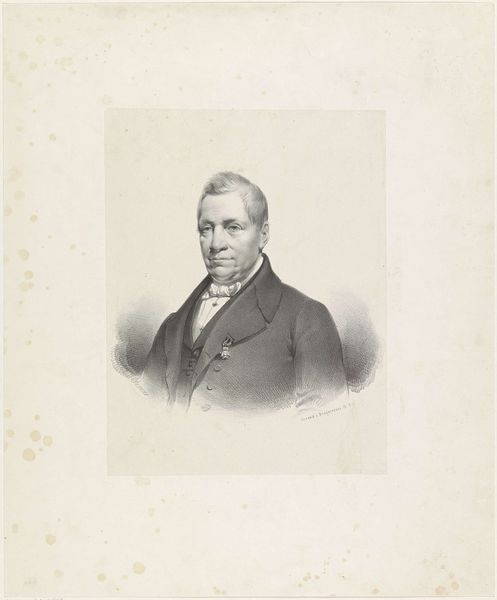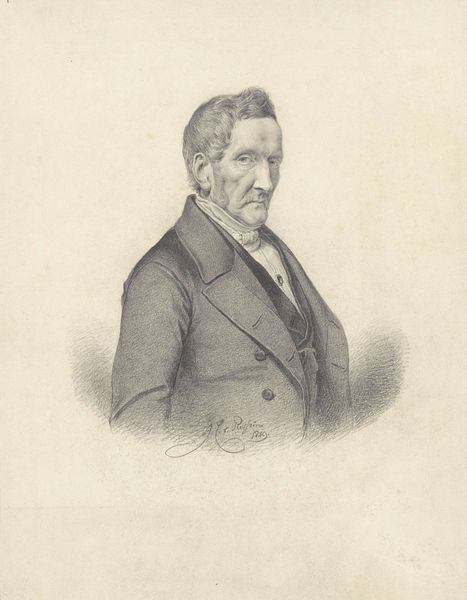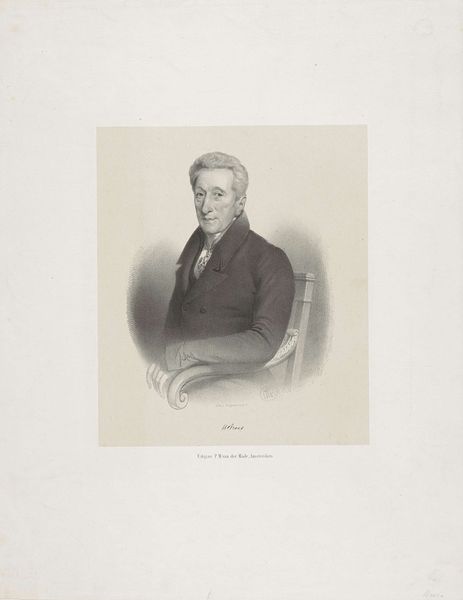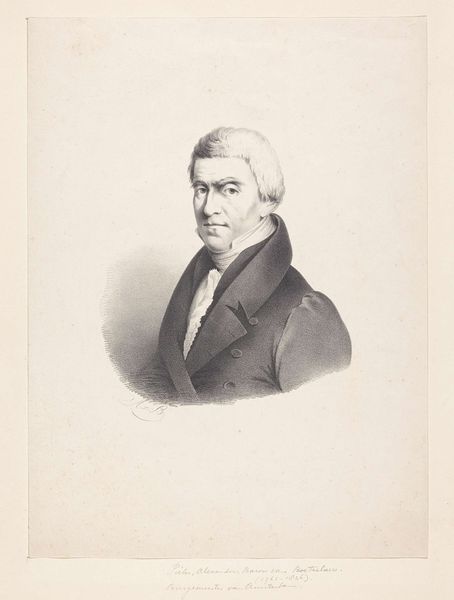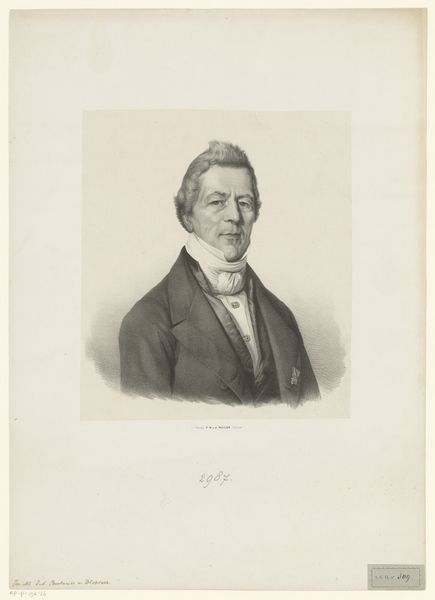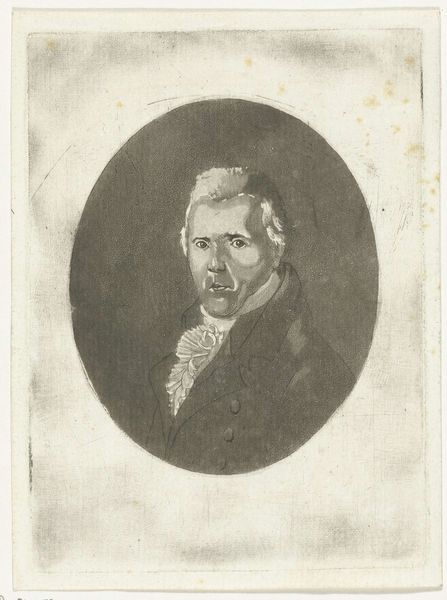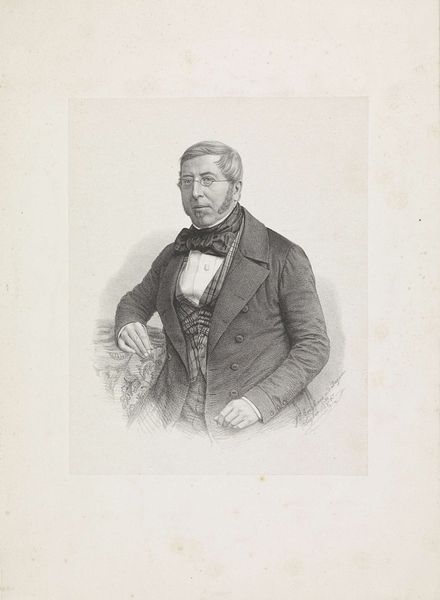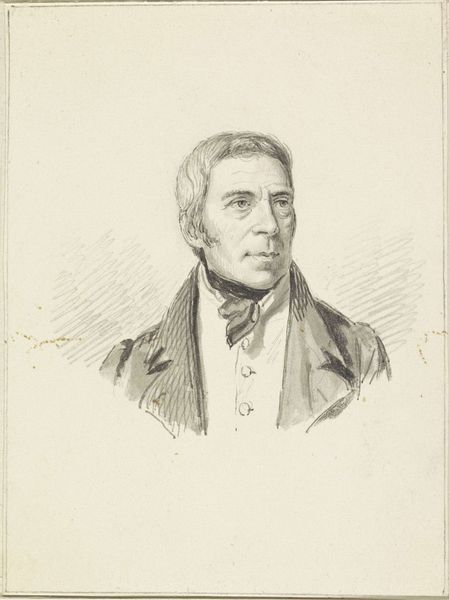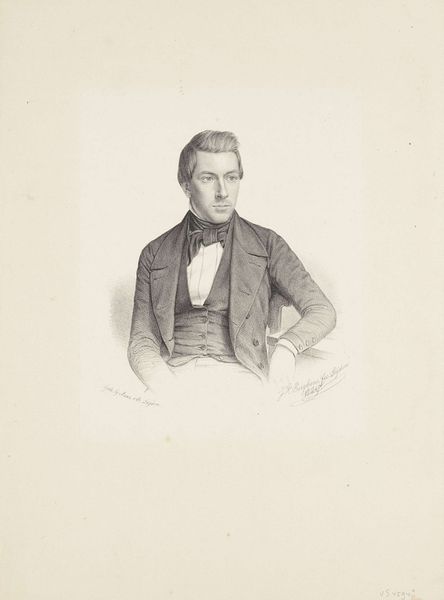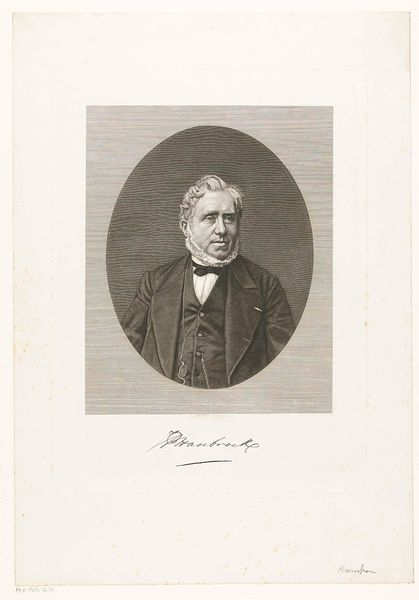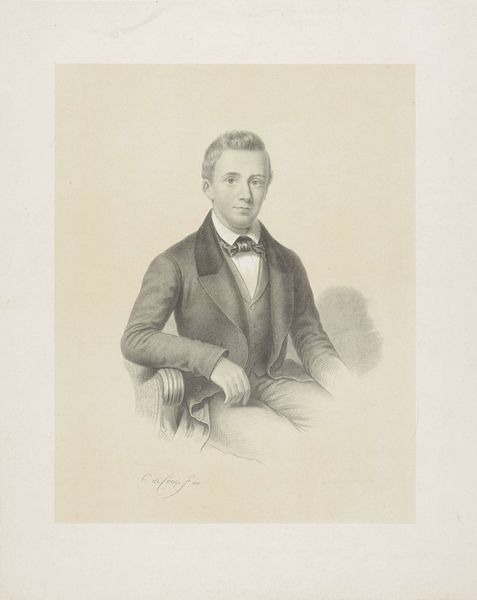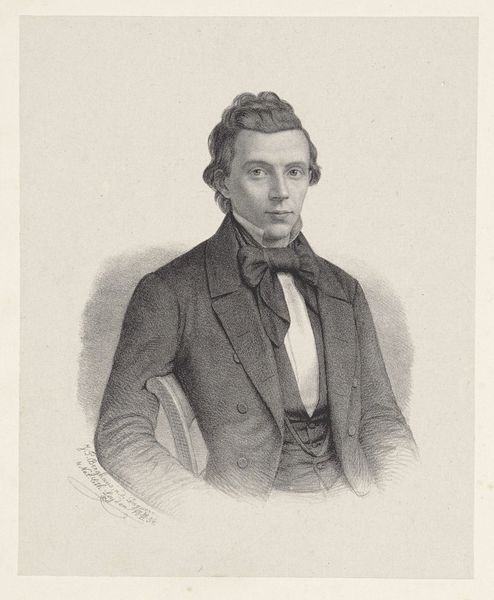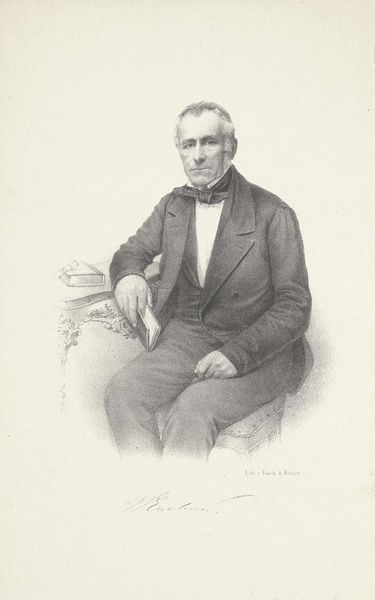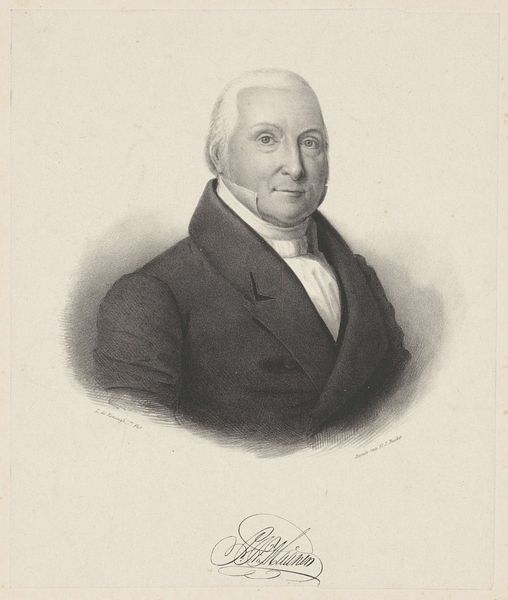
drawing, print, pencil
#
portrait
#
pencil drawn
#
drawing
#
light pencil work
# print
#
pencil sketch
#
portrait reference
#
romanticism
#
pencil
#
pencil work
#
academic-art
Dimensions: height 390 mm, width 295 mm
Copyright: Rijks Museum: Open Domain
Editor: This is J.B. Clermans's "Portret van Alexander Numan," created sometime between 1826 and 1839, using pencil and print techniques. The precision of the linework and the sitter's poised expression suggest a man of consequence. What does this portrait reveal about the subject and its time? Curator: It’s interesting to consider this portrait within the context of the emerging middle class and its aspirations in the 19th century. Portraiture shifted from primarily serving the aristocracy to representing figures from science, medicine, and the arts. What do you make of his clothing and the medal? Editor: He's wearing a formal coat, which speaks to his status. And that medal…it must denote some significant achievement or recognition. Curator: Exactly. And how might such elements influence public perception? Does the portrait serve a function beyond simple representation? Consider that the production of such prints allowed for wider circulation of Numan's image, thus influencing his public standing and potentially contributing to a particular political or social narrative. Editor: So it's about constructing and controlling public image…a kind of early form of branding? Curator: Precisely! Think about the relationship between art, power, and representation. Do you think that romanticized style has been adopted to glorify or idealize him? Editor: Absolutely, it gives him an air of respectability. I never really thought about portraits as a kind of social currency. Thanks, that's fascinating. Curator: And for me, it's always rewarding to see students engage with the deeper layers of art’s role in shaping history and society.
Comments
No comments
Be the first to comment and join the conversation on the ultimate creative platform.
